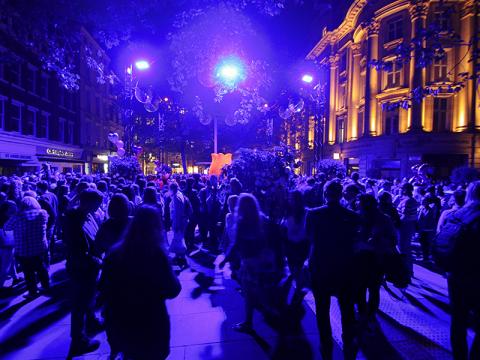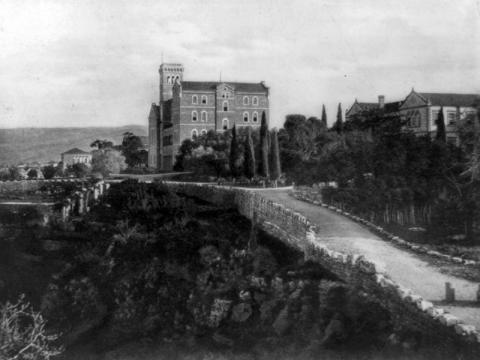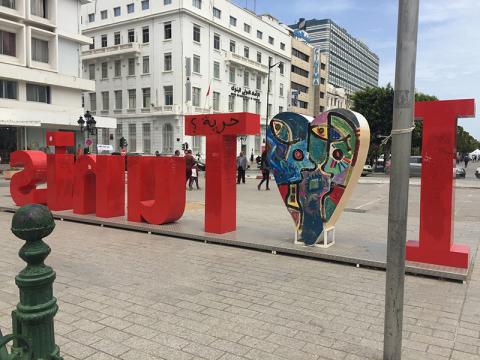|
Crowds gathered in St. Ann’s Square, Manchester, for a minute’s silence on the first anniversary of the Manchester Arena terror attack. Source: Amy Batley |
|
|
Terrorism in European Cities: Community, Memory, Security Amy's PhD research studies how social relations are implicated in the long term after terrorism in European cities. She is focusing on the concepts of community, memory and security, particularly in the cities of Paris, London and Manchester. Her previous fieldwork has included close analysis of various memorial events, both those which are ‘official’—led by municipalities and national governments—and ‘grassroots’—often led by local residents and victims. She is also interested in how the idea of a city in unity is deployed as a means to encourage positive social relations after terrorism through various branding exercises. Amy’s PhD research is supervised by Prof Wendy Pullan. |
|
View of the Syrian Protestant College, founded 1866, with College Hall in the foreground. Source: Library of Congress.
|
Constructing Beirut: Missionary Education and the Project of the City in 19th Century Lebanon This doctoral research looks at the construction of competing American Protestant and French Jesuit missionary educational institutions in nineteenth-century Lebanon, and questions their influence and role in the growth and urbanisation of Beirut. Focusing in particular on the foundation and evolution of the Syrian Protestant College and the Université Saint-Joseph, from 1873 to the early 1900s, the dissertation relies on extensive archival analysis—photographs, drawings, maps, reports, and correspondence—to elucidate the complex local and imperial networks of economic, industrial, philanthropic, and diplomatic influence utilised by both missionary groups to negotiate the construction and survival of their projects in the city. The dissertation argues that architecture and the built environment increasingly became powerful tools with which missionaries attempted to assert, shape, and represent their control over the city and its population, thereby contributing to long-lasting influences on both its social and physical form. Yasmina’s PhD research is supervised by Prof Wendy Pullan. |
||
|
City branding on Habib Bourguiba Avenue with the question ‘freedom?’ scrawled on it. Source: Dena Qaddumi |
Post-Arab Spring Tunis: Materializing Revolution in the City The images of the Arab Spring protests brought into focus the Arab city as a space for transformation. This PhD project extends this observation and asks: what are the urban consequences of the revolutionary event of the Arab Spring on the Arab city? A historical and regional approach is employed, one that recognises the major processes that have shaped Arab cities today, namely colonialism, despotism and migration. Tunis is considered a paradigmatic case through which to anchor this study. Using politics and culture as mediating devices, this research traces urban practices in ‘sites of conflict’ in Tunis. Through foregrounding the city as the lens through which to understand revolution, this research suggests that revolutions must be studied beyond their political and social consequences but also on their potential to shift urban meaning. Dena’s PhD research is supervised by Prof Wendy Pullan. |




